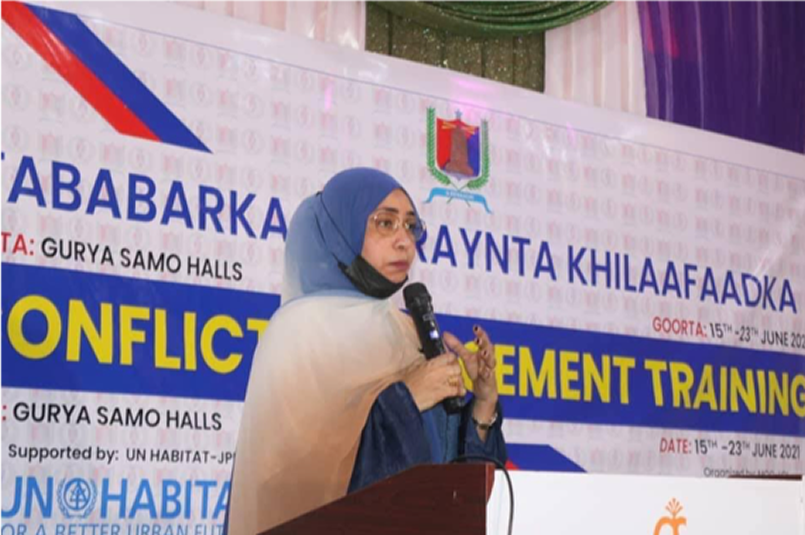Mogadishu 15 July 2021, Mogadishu, Somalia-UN-Habitat in partnership with Banadir Regional Administration (BRA) delivered an 8-day conflict management training to 54 trainees comprised of BRA and the local government staff as well as members of peace committees drawn from 17 districts of Mogadishu.
“The training strives to build the capacity of BRA and Mogadishu residents towards fostering lasting peace. As such, the training was tailored to deepen understanding of conflict resolution mechanisms, both traditional and conventional approaches, and enable community structures such as the peace committees to incorporate this in their routine work,” said Abdihakim Osman, UN-Habitat National Programme Officer, the Joint Programme on Local Governance and Decentralised Service Delivery.
Many parts of Somalia especially at the local level rely on the traditional community-based justice system mainly referred to as Xeer and Mogadishu city is not an exception. These systems govern societal relations and regulates multiple affairs including personal and business disagreements, marital disputes, land disputes among others. Xeer remains a dominant system and peace committees compliment it with other soft methods like mediation and negotiation in dispute resolution.

BRA’s Deputy Mayor for Social Affairs, Basma Amir said “there are numerous challenges related to serving the population in Mogadishu given that conflict may arise from time to time. Without having a clear understanding and sound knowledge on conflict management and dispute resolution would escalate the situation and hinder public service delivery.” She added that “District peace committees play a vital role in facilitating dialogue, cooperation, communication and interaction between authorities, the police and the public in Banadir region, hence their vital inclusion in the training.”
BRA through the support of UN-Habitat designed a conflict management training manual from which this training was drawn. The manual is aimed at facilitating districts and local governments in proactively instituting conflict management capacities at the community level, to achieve safer and resilient communities in line with SDG 11 of sustainable cities and communities.
UN-Habitat has played a fundamental role in enhancing the capacity of local governments and its effort have upscaled widely across Somalia due to the demand for self-sufficient decentralized governments.